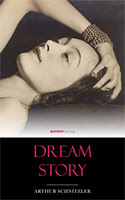
Late Fame is a novella by the Austrian novelist and playwright Arthur Schnitzler (1862–1931). In 1938, Schnitzler’s writings were saved from the Nazis and moved to the Cambridge University Library. In 2014, Late Fame was re-discovered in Schnitzler's archives and published posthumously.
Schnitzler is known writing with candor about pleasure-seeking and sex in fin-de-siècle Vienna. Sigmund Freud called Schnitzler his "doppelgänger." Many of Schnitzler’s works were censored and banned because of their subject matter. In recent years, Schnitzler’s story Traumnovelle (Rhapsody or Dream Story) was adapted by Stanley Kubrick as the film Eyes Wide Shut starring Tom Cruise and Nicole Kidman.
In Late Fame, we meet Eduard Saxberger, an older man who lives quietly in Vienna and works as a civil servant. One evening, a young man named Wolfgang Meier arrives at his door asking if he is the poet of the Wanderings. Saxberger is astonished. In his youth, he published a volume of poetry, but his writing was never recognized. Like many people, Saxberger went on with life and stopped writing. But now, this young man and his circle of aspiring literary friends have rediscovered Saxberger’s writings and wish to celebrate him.
Meier invites Saxberger to join his literary society called "Enthusiasm." The group meets at a local coffee shop. Saxberger begins to attend and enjoys the admiration of the group. He explores his dusty documents, reads his old writings, and wonders if he is a poet after all. The literary society decides to put on a recital to get recognition for their works, and they ask Saxberger to contribute a new piece.
Saxberger agrees, but can he can he write a new work? Can he recapture his youthful dream? And does he fit in with this group of young writers, or is he past his prime?
Late Fame explores themes of aspiration, aging, artistic temperament, and vanity and is both tragic and comedic.
Purchase and read books by Arthur Schnitzler:


© penciledpage.com





Post a Comment
Share your thoughts